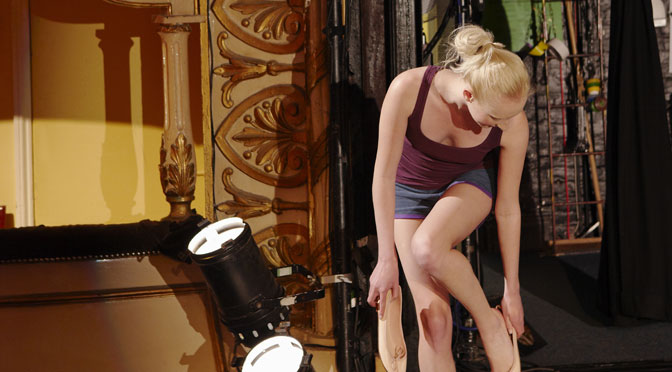The French edition of the captivating narrative “Stage Fright“, now titled “Peur,” has finally arrived seven years later. Reason enough to take a closer look at the psychological implications of the story. The action takes place during rehearsals for the play “Angst” by Albanian author Aleksandër Caliqi. The background is the so-called lottery uprising in Albania in 1997, when public order in southern Albania collapsed completely as the insurgents looted military camps and armed themselves with firearms.
The existentialist play requires Anna to bare her soul, with a highly symbolic monologue taking center stage. The tale delves into the human experience of fear and hope of actors when they confront their audience naked for the very first time. Author Sandra Manther has painted a vivid picture of the psychological implications that come with the demand of exposing oneself to the public. In this blog post, we will delve deep into the intimate world of “Stage Fright” to explore the intricacies of the genre ENF (embarrassed naked female) and its effects on the human psyche.
The story follows Anna, a female protagonist, who feels constantly scrutinized by the male gaze. The play “Angst” demands that Anna strip bare her soul, highlighting a profoundly symbolic monologue. The performance becomes a terrifying passage through hell for Anna, who feels already vulnerable to the scrutiny of male spectators. “Stage Fright” forces Anna, and by extension, the reader, to confront their open wounds and deepest fears.
In ENF-themed narratives, the characters are stripped down to their vulnerable forms, which can be liberating for some, but traumatizing for others. ENF denotes exposure with fear, creating a double bind: having the audience see and appreciate the body and feeling ashamed at the same time. This psychological challenge is endless, and it requires psychological resilience to overcome.
Furthermore, “Stage Fright” highlights the experiential growth of Anna as she becomes more exposed, which adds a psychological dimension to ENF. The psychological aspect of ENF in “Stage Fright” shows how the concept of nudity can be used to explore emotions and thoughts. The author uses nakedness to explore human vulnerabilities. Through the naked form, the author challenges societal norms that associate nudity with a lack of innocence.
Interestingly, the ENF genre often subverts the male gaze, which is based on power dynamics in film and media. The ENF genre places the power dynamic in the hands of the woman, who is in control of her exposure. This aspect is evident in “Stage Fright,” where Anna overcomes her fears of being exposed in front of a male audience. Her newfound confidence helps her to be comfortable with her nakedness on stage.
“Stage Fright” is a captivating ENF narrative that explores the intricacies of human psychology when exposed to the world. Kürtner’s ability to paint an immersive world with vivid imagery and intimate characters departs from the norm and captivates audiences in unique ways. This narrative provides insights into the psyche and is perfect for writers seeking to explore this provocative theme. “Peur” is recommended for those looking for a tantalizing read on the human psyche and the erotic genre.

